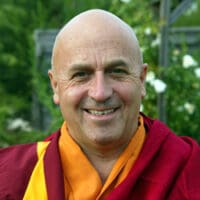Overview
As we consider the views of both Buddhist philosophy and Western science on the nature of the self, what are the implications about our interactions with others, and our behavior in the world? What can we make of the idea that the self is constructed, and that all phenomena, including “selves,” are interdependent and mutually co-arising? In this presentation, I will discuss how the way we conceive of the self has deep repercussions on our relation to ourselves, to others, and to the world. I will also distinguish the notions of altruism, empathy, and compassion, and present a way to enact both individual change and societal change by adopting a more compassionate, selfless attitude. Specifically, I will explore the concept of altruism and attempt to show that it is a natural predisposition among human beings. Although some philosophers and psychologists have believed that we are irredeemably selfish, there are no scientific studies supporting such theory; indeed, a significant number of people do behave altruistically. I will also argue that altruism seems to be the only concept allowing us to reconcile the needs pertaining to the short term of the economy, the midterm of the quality of life, and the long term of the environment. Applications will be considered, including enhanced cooperative learning in schools and stronger cooperation within corporations, as well as the notion of sustainable harmony, which aims at reducing inequalities and preserving our environment and the other 8.7 million species who are our co-citizens on this planet.
- Dialogue 3019 sessions
- December 17, 2015Sera Monastery, Bylakuppe, India


